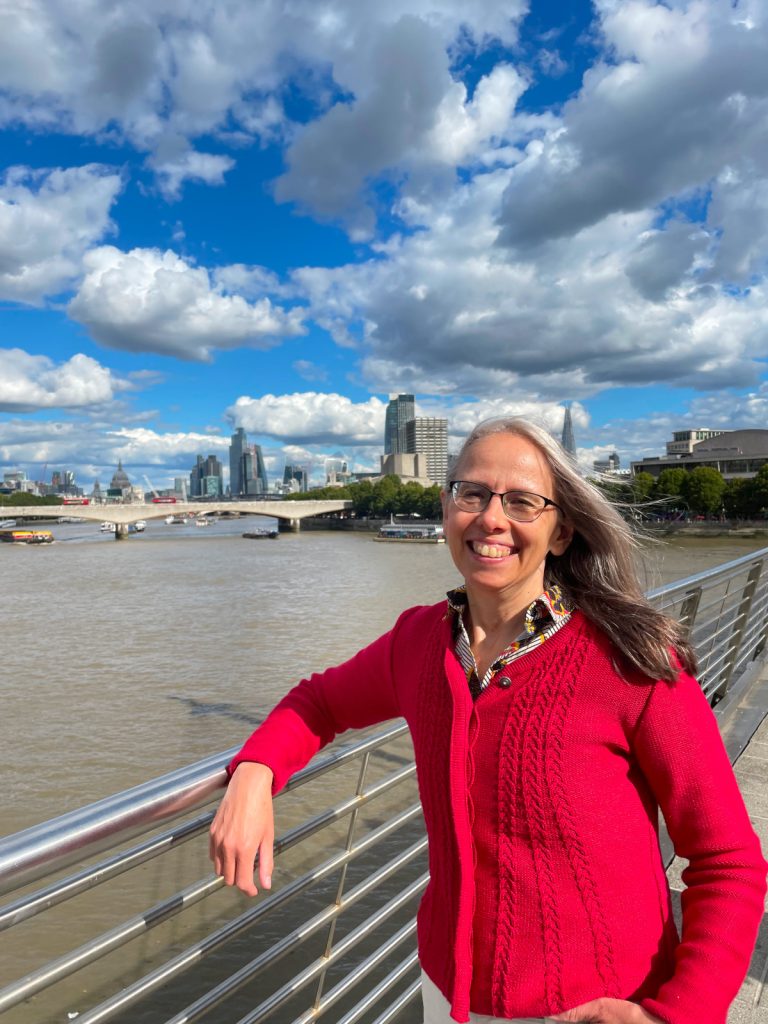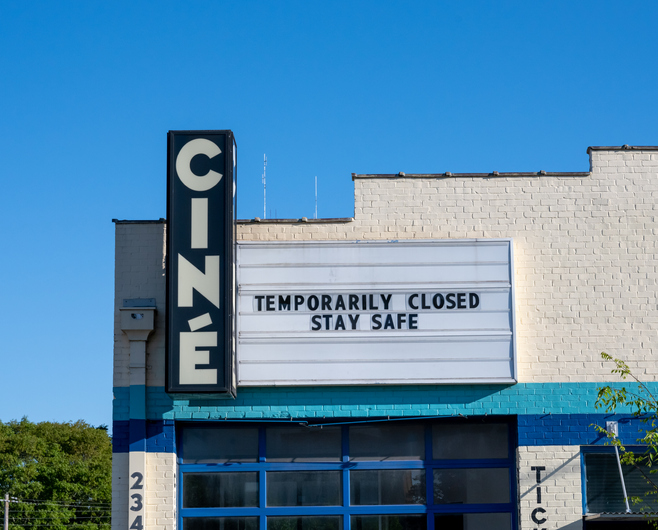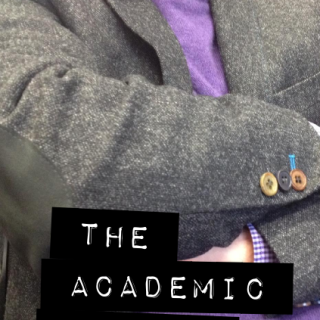Lawbore journalist Ashley Gate speaks with Professor Tamara Hervey as part of our Academic Corner series. Here’s what she found out…
Today we sit down and discuss the ever-complicated world of United Kingdom health law since Brexit was first announced after the 2016 referendum, as well as the implications the decision had on the NHS both in expert circles and for those of us ‘ordinary’ people. Now as an American, who has only recently relocated to the United Kingdom, I needed some help in the matter. Thankfully, I had the privilege of chatting with City Law Schools’ own Professor Tamara Hervey. Before we get into the thick of it, here’s what you should know about our esteemed interviewee. And note, this snippet merely covers Professor Hervey’s work which relates to the topic of the current discussion, in other words, this is just the tip of the Hervey iceberg.

Professor Tamara Hervey studied at Glasgow and Sheffield, and held academic posts at Durham, Manchester, Nottingham and Sheffield Law Schools, before joining The City Law School in 2021. She is Jean Monnet Professor of EU Law ad personam. Tamara is currently working in three broad areas: transnational, global and comparative health law; equality and diversity; and legal education.
She was the Principal Investigator of Health Governance after Brexit, an ERSC-funded project that investigated the effects of Brexit on health and the NHS and compared the views of legal and policy experts with those of ‘ordinary people’ in towns in Northern Ireland and the north of England. She is co-editor of a major project on comparative health law, published as a Research Handbook by OUP.
Tamara is collaborating with UK, EU and North American – based scholars, policy-makers, and practitioners, across disciplines. She was one of the Co-investigators on the Jean Monnet Network on EU health law and policy in comparative contexts, with Katherine Fierlbeck (Dalhousie).
Following the 23 June 2016 referendum, Tamara continues to contribute to understanding the UK’s future legal relationships with the EU, particularly its implications for health law and policy, both within the UK and the EU. She served as Specialist Advisor to the House of Lords Inquiry on Cross-border Care after Brexit, and as a Specialist Adviser to the House of Commons Health and Social Care Committee. She is also working with the Northern Ireland Human Rights Commission.
Tamara is currently, alongside her team, in the process of writing an academic book detailing findings from the legal fieldwork research project: Health Governance after Brexit: Law, Language and Legitimacy, the main focus of our interview.
AG: I will begin with your cats, they’ve gained quite a following from what I have heard. What are their names?
TH: We have two cats at the moment and they have Shakespearan names. They are called Cordelia and Beatrice.
AG: Lovely names, which one would you say is the more mischievous of the two?
TH: Oh, that’s definitely Beatrice. In fact, she doesn’t really live at our house, she mainly comes in to eat [chuckles] like a normal cat.

Credit: Ro Rostant
AG: Have they been good during the pandemic, good company during this time?
TH: Mmhm, yeah. There’s lots of good research on the benefits of pets on mental health, and I think during the pandemic, it is a particularly good time actually. I can’t imagine a house without cats in it.
AG: I understand. I was raised with cats, and I have had cats my entire life. My first word weirdly enough was “meow” because of how much the cats were talking to me versus the parents.
TH: Aww, that’s adorable [chuckles]
AG: Yeah, I love them. So, moving on to more of the bulk of the discussion, I looked into your blog. I crept around, and I really, really enjoyed it. There’s a distinct quote that stuck out to me. You said, “Even as an undergraduate, I knew that I would value autonomy over my work more highly than salary.” That is an incredible statement. I was wondering if you had any advice for us younger academics on how they can maintain their autonomy in the workforce.
TH: It was a different world when I wrote that or thought that. I think higher education is a much more difficult place now than when I was starting out in my career. But whenever someone asks me one of these sorts of questions, pertaining to advice for younger generations, I always remember an interview I read. I think it was in the Guardian, and it was with a distinguished woman. A professor in philosophy at Oxford, I believe, and the woman interviewer asked her a similar question and she said— “Use a good face cream.” And what she meant by that was, there’s no point in me giving you advice. Your experience is going to be completely different from my experience. You’ll find your own way. The only thing I’ve got for you is, maybe use a good face cream.
AG: I think that is very refreshing, thank you. I actually really appreciate that mentality.
TH: And also, now that men and non-binary folks are keener to use grooming products it is not even a gendered story!
AG: Oh yes, everyone needs them. Especially sunscreen, I think everyone should be wearing sunscreen.
TH: Exactly, use a good sunscreen. There ya go.
AG: Now, moving on to more of the work that you’ve recently done related to Brexit and the UK’s healthcare law. You said that there’s almost nothing good for the NHS to come from Brexit. Could you please elaborate on that statement? I know many of our future lawyers aren’t as deeply educated in the realm of Health Law as you are.

TH: One way to think about this question is to use the World Health Organization’s structure on a health system. The WHO has a model of a health system that includes all the different aspects that one needs to make a health system work: workforce, products, administrative capacity, public health issues, systems, processes, leadership, financing and so on. If you use that model and look at each element that makes up a national health system and you look at the effects of Brexit on all those different things, on every single one the effect is either negative, majorly negative, or at best neutral. For example, our health system in England needs staff from elsewhere. One of the biggest things about Brexit was the changing of the UK’s immigration policy, to make the UK a place that is less open to the rest of the world. Our immigration law is more restrictive than it was when we were an EU member state, which has an effect on the ability of the NHS to hire staff not just from the EU, but also from elsewhere in the world.
AG: Absolutely, quite similar to the situation in America, we have a quite nasty immigration policy that hasn’t been updated since the 1970s, and the majority of our nursing population, especially on the west coast, are of Filipino descent. It is a very frustrating problem. I want to now talk about your large-scale fieldwork in the Health Governance after Brexit Project. That sounds like an absolutely invigorating and overwhelming challenge. What was the experience like for you?
TH: There were two different strands to the fieldwork on that project. There was a strand that we called, in shorthand, the ‘elites’ or the ‘health policy community’ strand. And then there was a strand we called the ‘ordinary people’ strand. Of course, there is no such thing as an ordinary person, everyone is extraordinary. In terms of the ‘health policy community’ strand, this was fairly mainstream social science research. We would use semi-structured interviews, asking people a very open set of questions. Basically asking, ‘post-referendum: how’s it going for you? What are you concerned about?’
What was interesting, or different, is that we would also offer to work with the organizations and people that we interviewed to provide bits of legal analysis that they might want in order to help them to understand the possible legal terrains going forward. For a lot of the period after the referendum vote, before the UK actually left the EU, we didn’t know what the legal terms of Brexit would be. So different legal terms for Brexit would mean different outcomes for organizations. For example, when we worked with Cancer Research UK, one of the things they were really worried about was if we had a no-deal Brexit, where there isn’t a withdrawal agreement. In such cases, how would they be able to share data in their cross-border cancer trials? In a no-deal scenario, the UK would have immediately become a place where the sharing of data would not be recognized by the EU. So we did a long piece of technical legal research for Cancer Research UK, looking into general data protection legislation where you could share data under such circumstances. In the end, a no-deal Brexit didn’t eventuate, but we were able to provide detailed legal analysis when oftentimes, organizations didn’t have the capacity to do that work themselves. When I worked for the House of Commons Health and Social Care Committee, it was helping the MPs to understand the terrain of EU law and how that might affect things to do with health in the UK. It was almost like a kind of ‘EU Law 101’, a translation of EU law to UK law relating to health if you like. That aspect of the fieldwork was really interesting, we worked with about eight different entities across different aspects of the health policy sector.
The bit that was more unusual was the ‘ordinary people’ fieldwork. What we wanted to do was get a sense of what ordinary people felt about what should happen to the NHS post-Brexit, and who should be accountable for that. It was also an accountability question. The way that we did this was very innovative for legal scholarship.

We had a picture of a bus advertisement used during the campaign. The implication of the slogan was, if we leave the EU it’ll be good for the NHS as we will have more money to put into it. After a pilot run, we went into two towns in the north of England and two towns in Northern Ireland and we set ourselves up with a little table, with University logos to show we weren’t selling something. With a laminated copy of the photo, we asked people “what comes to mind?” Depending on which way the conversation went, we had a rough schedule of questions to try to get to a discussion relating to accountability. But we weren’t asking them questions about their health, or their political views, directly. Instead, we were getting them to talk with us, it was a conversation. People told us the most extraordinary stories.
One man had a heart-wrenching story. He showed us photographs of his wife. They had been on holiday in Greece and she had taken ill. She had been admitted to a hospital, and unfortunately, she passed away there. What was supposed to happen was that if you are in the EU, you are supposed to be able to access healthcare in the country that you are visiting, but in this case, it didn’t work out that way. For him, there was a sense of betrayal there, since that wasn’t the way it was supposed to be.
One of the things that come out of the data, is that people have a very ambivalent understanding of the message on the bus. They know it’s not true, but they want it to be true. They are sort of drawn into the lie, even though they know it’s a lie. Quite a lot of the literature on Brexit assumes that experts think one thing, and ordinary people think something different. Whereas our data shows that, that gap doesn’t exist in the way the literature makes it seem.
AG: Now on the subject of accountability, were there any trends found or statements about accountability that stuck out to you?
TH: One of the biggest surprises for me in the street conversation data, was how much faith people have in law as an accountability mechanism. There were other points of accountability found in the street data; a fair amount on political accountability. Particularly in Northern Ireland, there were semi-joking kinds of physical violence accountability suggestions [chuckles]. But the focus on law was surprising to me because I am quite cynical about the ability of the law to hold people to account. Particularly in the UK as we have this s0-called ‘political constitution’ so the law, to me, is a very broken instrument for holding the government accountable. But the street conversation data suggests that ordinary people really do believe that law is, and should be, a mechanism for holding the government to account. That was quite surprising to me and quite sobering. It could be seen as evidence that the political settlement in the UK, as is, is not what ordinary people would want. There is an assumption by experts who support the political constitution that that’s the best way to organize a country. Potentially our data, along with other data, would allow us to challenge the idea that a political constitution is what ‘ordinary people’ want. In that way, our research relates to much broader legal and political questions, for instance, about populism.
AG: I am interested, real quick, in the stories you heard. Are there any others that have stuck with you
TH: There are so many. There is a story that we heard in Northern Ireland – this one was actually found in our work within the health policy community. The person we were talking to was talking about the nature of the border between Ireland and Northern Ireland. There is currently a shared healthcare system there. For example, there is a cancer hospital for the whole area near the border, irrespective of country, as well as other facilities like an adolescent mental health facility that is shared across the border.

Now, before the 1998 Good Friday Agreement, that was a hard border, you would have to be stopped and checked to cross it. After the Good Friday Agreement, it became an open and porous border. That meant, in particular, that ambulances could cross the border quickly and get patients in critical need to the nearest Accident and Emergency unit. This woman that we were interviewing told us a story about her husband who had taken ill on their farm. Luckily, he had been rushed to the nearest A&E hospital and he survived. She told us that before 1998, he would have died. Her perception was, in the case of a no-deal Brexit, it would be absolutely unacceptable to go back to that situation again.
AG: For clarification, was the fieldwork done during the deliberations, or was it after a Brexit deal was determined and delivered?
TH: The fieldwork was done before the withdrawal agreement was agreed upon. While we were doing the fieldwork, we didn’t know what kind of Brexit we would have.
AG: Was there fear? Or was there more tongue and cheek ‘ready to handle whatever came next?’
TH: No, especially in Northern Ireland there was genuine fear. But there was more fear in the health policy community than with the people we talked to in the street. There were some people that used language that suggested fear.
AG: Of course, as you can’t assume fear. (An incorrect statement on my part!)
TH: Actually, that is how we analyzed the data. We looked at the stories that people told and we looked for the metaphorical language that they used. Sometimes people used metaphorical language like ‘precipice’ to suggest that they were frightened.
AG: Now, within the ‘expert’ category, you touched on the fact that there was a lot of fear. Could go into more detail on what they thought and said within your findings?
TH: The main theme of the data from the policy people was a feeling of utter frustration towards the unwillingness of the government to be transparent about what the plan was. To the extent that many within the healthcare community began to believe that the government didn’t have a plan, which was then very worrying. We had an interview with an MP who used to be a cancer doctor. She talked to us about radioisotopes, which you need in order to diagnose certain cancers. They can’t be stockpiled, as an isotope is constantly degrading. If we had a no-deal Brexit, it would immediately become illegal to import these, from the point of the EU. This MP wanted to know what the government’s plan was, and she was left wanting. The level of detail needed from a healthcare viewpoint was missing in the government response.
AG: I can’t imagine how frustrating that would be as so many niche aspects of healthcare, especially in such a globalized world, are interconnected.
TH: Yeah, and this is pre-pandemic. People didn’t realize how interconnected supply chains are. People didn’t understand that the NHS supply chain is ‘just-in-time.’ It took the pandemic to teach us that.
AG: Oh yes, we learned a very similar lesson back home in the States too. Unfortunately, in our case, we are still dealing with a very much ‘just-in-time’ type method, which I don’t think is feasible long-term.

TH: On a personal note, the pandemic caused massive frustration as we had created a film, showcasing what was found through the research project. And only a week after debuting the film in a lovely Belfast cinema, the first lockdown began. So all of our plans for the film, which included taking the film back to the communities, because that’s really good ethical practice to go back to the location where you researched and share results, became impossible.
AG: Obviously, all of these stories can be harrowing, since you are dealing with health, and people’s lives being on the line. How was your mental health affected by what you were learning in your fieldwork? Was there anything that you did to protect yourself?
TH: We were working as a team. It is a small, quite diverse team. That was quite nice as we had each other’s backs and we used English and Irish dark humour. That was our main protection. We allowed ourselves to use dark humour.
AG: I can understand that completely. I was working front-line with some antibody experimentation during the first wave of COVID-19, back before vaccines came out in the States. Oh, the amount of dark, dark humour that we built up. It was honestly a great help. In fact, sarcasm had an explosion after WWII, in literature and things of that nature. It’s kind of horrific but after a very traumatic global event, we humans tend to get a bit funnier. A weird silver lining. It’s nice to hear from a more academic standpoint that we all laughed our way through this.
TH: We did yes, we also had coffee on zoom every day for those who could join. That’s how we got through the initial lockdown on the team level. And obviously, my cats joined in on the Zoom meetings as you can’t have your laptop open without them needing to be on the camera. [chuckles]
AG: I honestly think they really enjoyed the pandemic. At least the animals had a great time during all this.

We finished with a light conversation on her team’s upcoming book covering their Heath Governance after Brexit Project, which is in its second phase of review. An incredibly accomplished author, you can find Professor Hervey’s nine works she either co-authored or wrote in their entirety on her amazon kindle store. Professor Hervey regularly has opportunities for (paid) student internships, so keep an eye out for those too, if you might be interested in working on projects like these.
Ashley Gate is a master’s in law student specialising in international Human Rights Law. With a previous background working as a medical aid during the onset of the Covid-19 pandemic back in United States, she has a keen eye for the intersectional aspects of health inequity. Ashley has a passion for politics, history, and gardening. Ashley is a member of the 2022-23 Lawbore Journalist Team.

